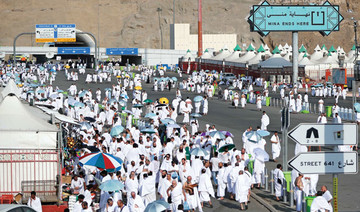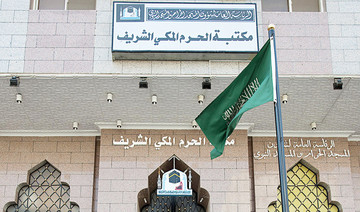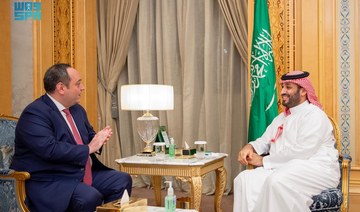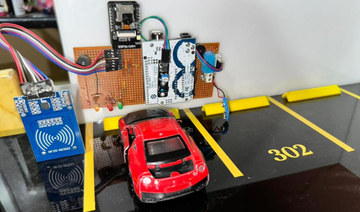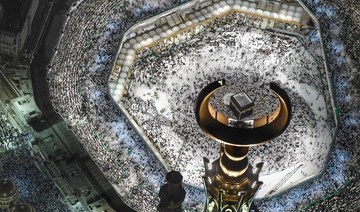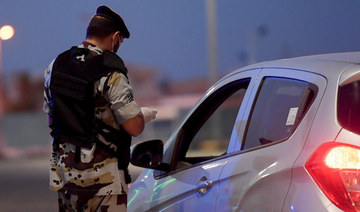JEDDAH: Ali Bey Al-Abbasi was not the first European enamored with the Arab Peninsula and the mysteries of Makkah. Nor was he the first Westerner to visit the city — but he was an unusually resourceful man, with wealth of unknown origin and a great thirst for discovery, who provided Westerners with the first comprehensive account of the city.
He was born Domingo Francisco Jorge Badía y Leblich in Barcelona in 1767. After receiving a liberal education, he focused on astronomy, medicine and mineral science. He also developed an interest in learning Arabic.
“Al-Abbasi was an agent of the king of Spain or of Napoleon,” says August Raleigh, author of the book “Makkah in the Eyes of a Christian Pilgrim.”
In 1801, Al-Abbasi set off for Paris and London, returning to Spain two years later wearing Islamic clothing. Later, he formed a close friendship with the sultan of Morocco who, with growing affection, advised the Spaniard to find a wife, to which Al-Abbasi replied that he had made a pledge not to marry before visiting Makkah. The sultan tried to discourage Al-Abbasi from making the trip but when he could not, and saw the determination of his friend, he presented him with a beautiful, extravagant tent as a gift.
On the third day of Shawwal, 1806, Al-Abbasi joined a convoy heading to Makkah, taking with him 14 camels and two horses. He boarded a ship from Suez but fate, and the weather, were not on his side. The vessel floundered and sank, forcing Al-Abbasi and his men to flee in a lifeboat and row for hours before reaching the safety of a Red Sea island. From there, they were rescued and taken to Jeddah.
On the 12th day of Dul Qaada, Al-Abbasi had to be carried on a stretcher because he had a fever that weakened him and damaged his bones. The next day he and his companions wore Ihram garments and walked along winding roads until they reached Makkah.
Al-Abbasi entered the city and when he reached the courtyard of the mosque, a guide gestured for him to stop. He pointed to the Kaaba and said: “Look. Look at the house of God.”
The Spaniard was deeply affected by the reverence of his experience. He wrote: “The house of God is covered with a black robe from above to be draped, surrounded by a ring of lamps, the unaccustomed hour and the stillness of the night; and our guide, who was speaking before us as if he were inspired, all these images formed an amazing image that will not be erased from my memory.” 
He remained in the city, living among noblemen and aristocrats. The governor of Makkah even asked him to help clean the Kaaba. Describing one of the many incredible sights that he witnessed, during a year when the number of pilgrims was 83,000, Al-Abbasi wrote: “Only in Arafat can one get an idea of the majestic scene of pilgrimage. There are countless people from all nations and colors from every corner of the world. Despite the thousands of countless dangers and obstacles that they had to overcome, all of them worship one God. Everyone counts themselves as members of one family. There is no intermediary between man and his Lord; everyone is equal before their creator.”
Al-Abbasi, who later wrote of his experiences, was the first European to present to the world a detailed account of Makkah, unlike the fragmented notes of earlier travelers such as Ludovico di Varthema and Joseph Bates. He went so far as to include a precise location, determined through astronomical observation, and recreated a map of the Grand Mosque.
Al-Abbasi continued to travel, visiting many countries before he died of dysentery in 1818, in Aleppo, Syria. He was buried in Balqa, near Amman, the capital of Jordan.
Enigmatic traveler who revealed full majesty of Makkah to the world
Enigmatic traveler who revealed full majesty of Makkah to the world

- The next day he and his companions wore Ihram garments and walked along winding roads until they reached Makkah
- The vessel floundered and sank, forcing Al-Abbasi and his men to flee in a lifeboat and row for hours before reaching the safety of a Red Sea island
Prince Faisal bin Farhan speaks with Swiss foreign minister

- two ministers discussed developments of common interest and efforts made by both countries in those areas
RIYADH: Saudi Foreign Minister Prince Faisal bin Farhan spoke on the phone with his Swiss counterpart Ignazio Cassis on Thursday.
During the call, the two ministers discussed developments of common interest and efforts made by both countries in those areas, Saudi Press Agency reported.
Cassis was in the Kingdom last month to attend the Special Meeting of the World Economic Forum held in Riyadh on April 28 and 29, during which he met with Prince Faisal.
Prince Faisal and Cassis also met earlier in the year in February during UN meetings in Geneva.
Saudi FM discusses preparations for Expo 2030 with BIE chief
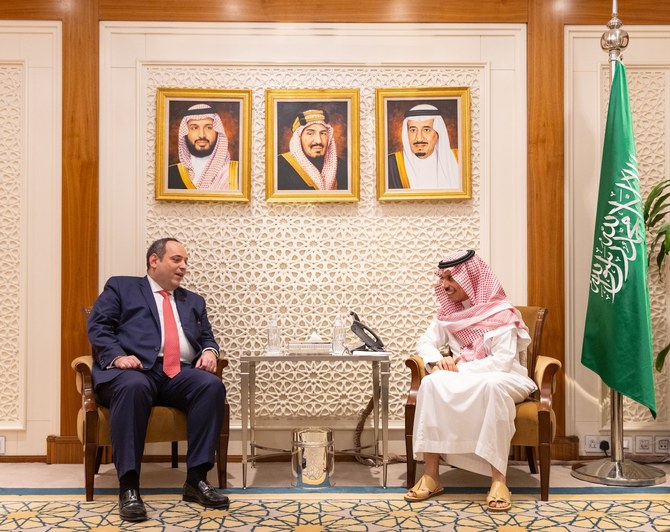
- During the meeting, the two officials discussed the Kingdom’s preparations to host Expo 2030 in Riyadh
- “We underlined the importance of careful planning to deliver a transformational World Expo in 2030,” Kerkentzes said
RIYADH: Saudi Foreign Minister Prince Faisal bin Farhan received the Secretary-General of the Bureau International des Expositions Dimitri Kerkentzes in Riyadh on Thursday.
During the meeting, the two officials discussed the Kingdom’s preparations to host Expo 2030 in Riyadh and coordination to ensure that the exhibition would be “exceptional,” Saudi Press Agency reported.
Writing on social media platform X, Kerkentzes said: “We underlined the importance of careful planning to deliver a transformational World Expo in 2030.”
The BIE chief met with Crown Prince Mohammed bin Salman on Wednesday.
World Expo 2030 will be hosted in Riyadh after the Kingdom defeated challenges from South Korea and Italy to host the prestigious event in November 2023.
Female students take top prizes at university’s Engineering Hackathon
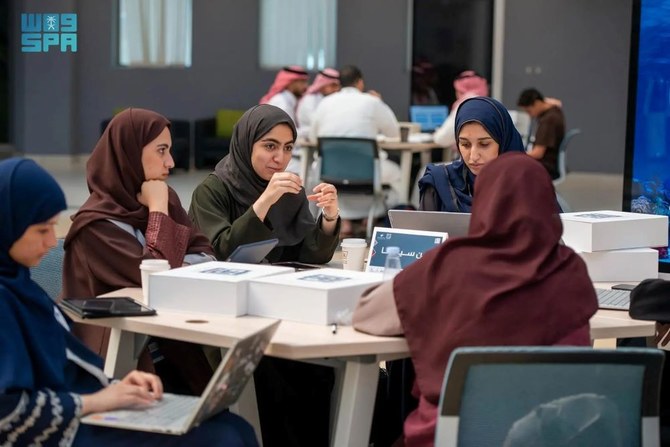
- 88 teams from the Eastern Province took part in the event at Imam Abdulrahman bin Faisal University
- Team Al-Farahidi took first place with its Aram project, which aims to help prevent sleepwalking
RIYADH: Teams of female students took the top three prizes at Engineering Hackathon 24, which concluded on Wednesday at Imam Abdulrahman bin Faisal University in Dammam.
A total of 88 teams of male and female students from the Eastern Province took part in the event, which began on April 27, the Saudi Press Agency reported.
Murad Al-Thubaiti, dean of the university’s College of Engineering, welcomed the high level of participation by students from universities across the province, and said 16 teams were chosen as finalists to present their projects, which covered a variety of specializations.
Team Al-Farahidi took first place with its Aram project, which aims to help prevent sleepwalking. The members were Nada Al-Dosari, Sarah Al-Nami, Manal Al-Tamimi and Nihal Al-Suhaibani.
Second spot went to Al-Khawarizmi, a team comprising Fatima Shuwaiheen, Fatima Al-Baik, Hawraa Al-Suwaiket, Walaa Al-Sulays and Amani Al-Saeedi, who designed a device that helps isolate cardiac signals from background noise.
Team Al-Battani was awarded third place for its system to help surgeons deal with stress. Its members were Hawraa Al-Wael, Dahhouk Al-Sabaa and Zainab Bou Moza.
Al-Thubaiti said activities such as the hackathon are an essential element for the development of students’ personalities and helping them prepare for the future.
Illegal workers in Riyadh region arrested after changing expiry dates on food products
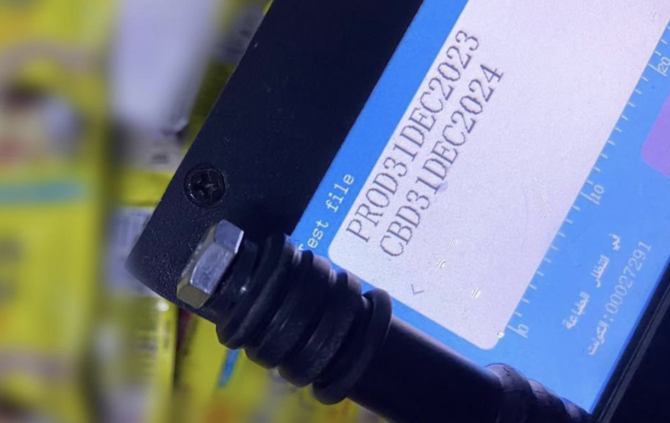
- Seized products included 248,000 chicken stock cubes weighing 8 grams, 4,600 potato chip products, 2,900 soy sauces, and 1,500 pasta sauces
- A laser device used to print new production dates was also seized
RIYADH: Illegal workers at a farm in Riyadh region’s Huraymila governorate were arrested after they were caught by the Saudi Ministry of Commerce changing the expiry dates on products, Saudi Press Agency reported on Thursday.
A 3.00 a.m. raid was carried out in cooperation with Riyadh region police and Huraymila governorate police after expired products that were seized in the possession of expatriates a few hours earlier were traced back to the farm.
Seized products included 248,000 chicken stock cubes weighing 8 grams, 4,600 potato chip products, 2,900 soy sauces, and 1,500 pasta sauces. The products were later destroyed. A laser device used to print new production dates was also seized.
The workers were referred to the competent authorities so that deterrent measures could be taken against them in accordance with the provisions of the anti-commercial fraud law.
The ministry said that violators of the anti-commercial fraud law could be imprisoned for up to three years, fined up to SR 1 million ($266,623), or receive both punishments. They could also be deported, the ministry added.
Saudi Arabia calls for unified Arab efforts to confront environmental challenges

- Minister Abdulrahman Al-Fadli spoke of biodiversity and the Arab region’s natural resources
- Al-Fadli said that the region was capable of utilizing technology and innovation
RIYADH: Saudi Minister of Environment, Water and Agriculture Abdulrahman Al-Fadli has stressed the importance of regional action to combat environmental challenges facing the Middle East and North Africa region and the world, the Saudi Press Agency has reported.
Speaking during the 38th meeting of the Arab Organization for Agricultural Development in Riyadh, the minister spoke of biodiversity, the area’s natural resources and the range of agricultural environments, while stressing the challenges facing the region. He called for a united effort to reduce the impact on the region’s peoples.
Al-Fadli said that the Arab region was capable of utilizing technology and innovation, as well as seizing opportunities to invest in agriculture and improve practices to become more productive, efficient and sustainable in the use of water and natural resources.
He said enhancing trade, regional and international cooperation, and the benefits of international organizations were sources of optimism.
The minister said that the Arab region could take advantage of opportunities in technology, innovation and investment in agriculture by improving practices to make the utilization of water and natural resources more productive, efficient and sustainable.
Ibrahim Al Dukhairi, the director general of the organization, pledged his support for sustainability and agricultural development in the region, along with the development of the Arab landscape and food security.
He pointed out the significance of strategies to launch the necessary initiatives and partnerships to achieve the region’s goals.


